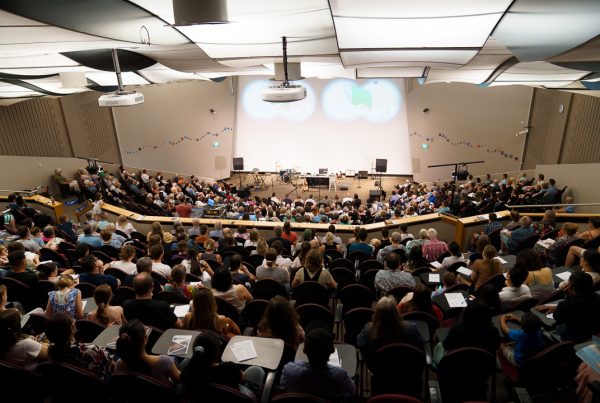29 May 2011
Friends, you may know I’ve taken a lead in encouraging support in Anglican circles for parliamentary moves to reduce the harm from problem gambling on the pokies. The reforms (e.g. compulsory pre-commitment) could be compared to installing seat belts in cars and enforcing speed limits. They are about reducing risk in a potentially dangerous activity.
However my question today is far broader: Is gambling a sin? Here is a careful definition from Phil Johnson: To gamble is to wager on a contest or to play at a game of chance for stakes. A stake is a prize one person stands to gain through the loss of others.
To make the distinction clear, a lucky door prize is not gambling if no fee is charged for entry to the contest, since the winner’s prize is not financed by the loss of other contestants. Farming is not gambling either. Yes, a calculated risk is taken that the crop will not be ruined by drought or flood etc. But any gain the farmer makes is not financed by the loss of others.
In gambling no new wealth is created (unlike farming). Rather existing wealth changes hands, and one person’s gain always comes from another’s loss. Of course, there is no one Bible verse against gambling. But neither is there any verse that forbids arson or graffiti. Yet here are some biblical reasons to see gambling as a sin.
- Gambling is inconsistent with biblical virtue. It is fueled by covetousness: wanting what belongs to another. This is forbidden in the 10th Command (see Exod 20:17; Col 3:5). Certainly the essential foundation of the industry is greed and materialism.
- Gambling is also contrary to a biblical work ethic that we should not gain wealth without working for it, especially not by taking it from others (see Eph 4:28; 2 Thess 3:7-10).
- Our possessions are not our own to squander, but are given to us by God manage as faithful stewards (see Matt 25:14-30; Prov 22:16). Gambling providers are not in it for fun. The odds are always stacked so the organisers (TAB, casino, club etc.) make money. Gamblers must always lose over the long run, and usually over the short term as well.
What about the disciplined gambler who sees it as his preferred entertainment, enjoying no more than $50/week on the pokies, whereas someone else might spend it at the football? Then ask why they are not willing to play the game without staking any money on the result (e.g. poker with matchsticks, or keeping a tally of your predictions in the football). If the answer is that it’s not as much fun, then this proves the entertainment does not come simply from the competition, but from the possibility of winning money from someone else.
Immediately covetousness must be one of the factors.
The problem is that any gains you make in gambling always come at the expense of others. Even when mutual consent is implied by their participation in the wager, we all know that a significant portion of the participants cannot afford their losses. For the problem gamblers, their losses impact on family, friends and workplace, who have not consented to this damage. As Phil Johnson says, gambling is to stealing what duelling is to murder!
I am not saying that all episodes of gambling are equally sinful. A once a year $5 flutter on the Melbourne Cup is petty. But it is still participation in a system that is based on covetousness and greed, and which causes huge and unaffordable losses to some.
Perhaps the best question to ask is not simply whether gambling is sin, but whether gambling can ever be a form of love? For love only ever promotes the welfare of others.
Warmly in Christ, Sandy Grant
Source: Phil Johnson article at Pyromaniacs





